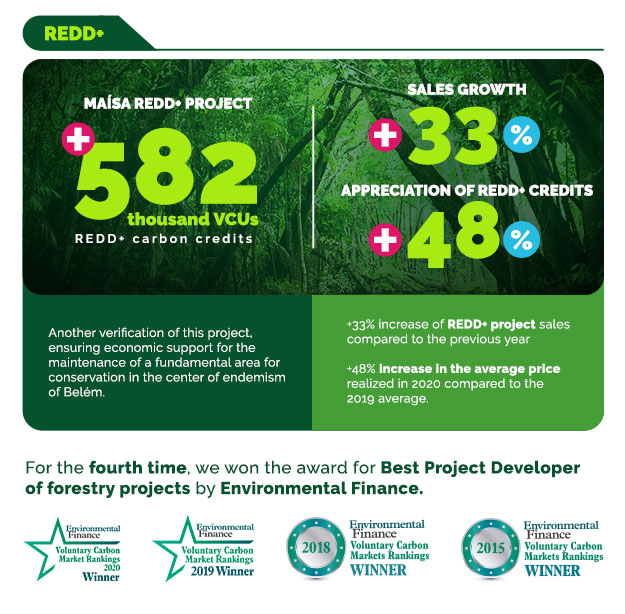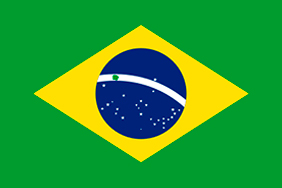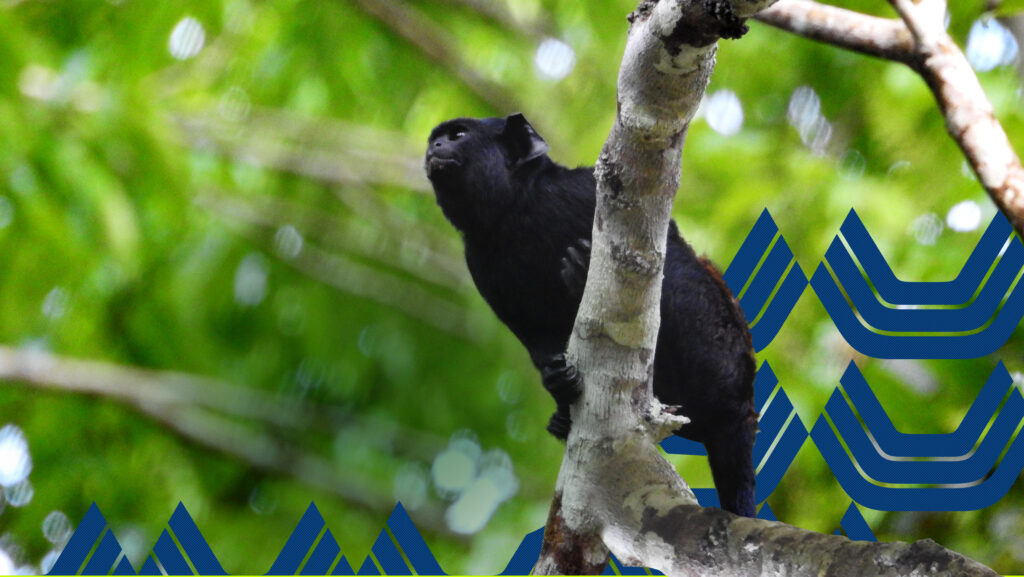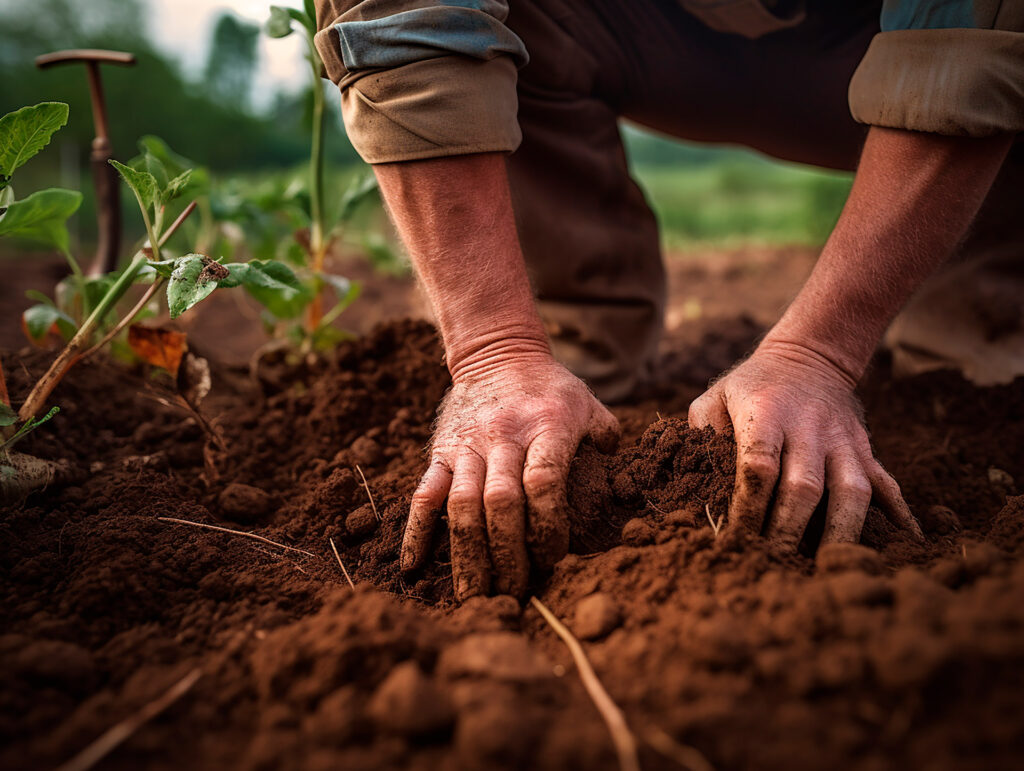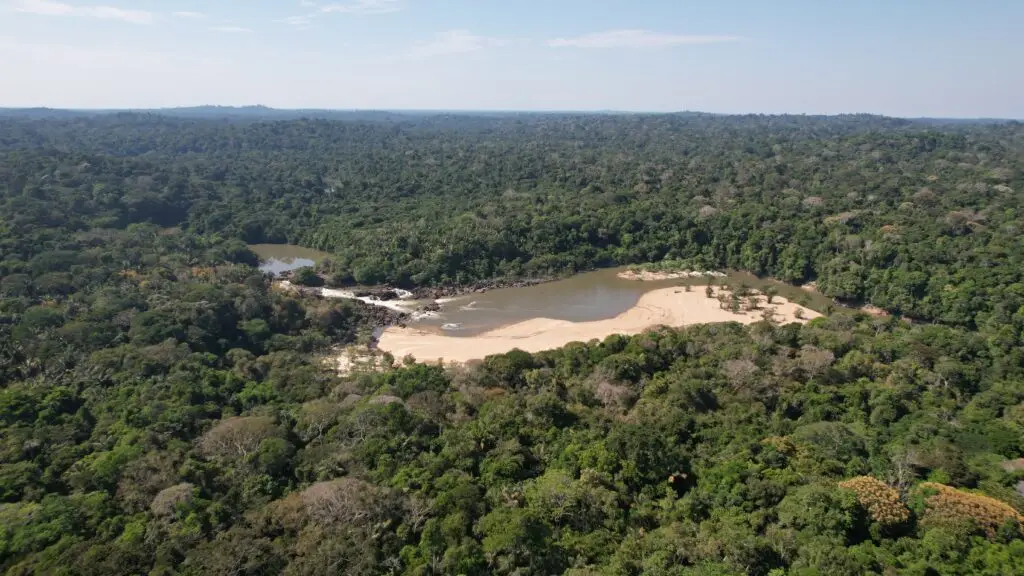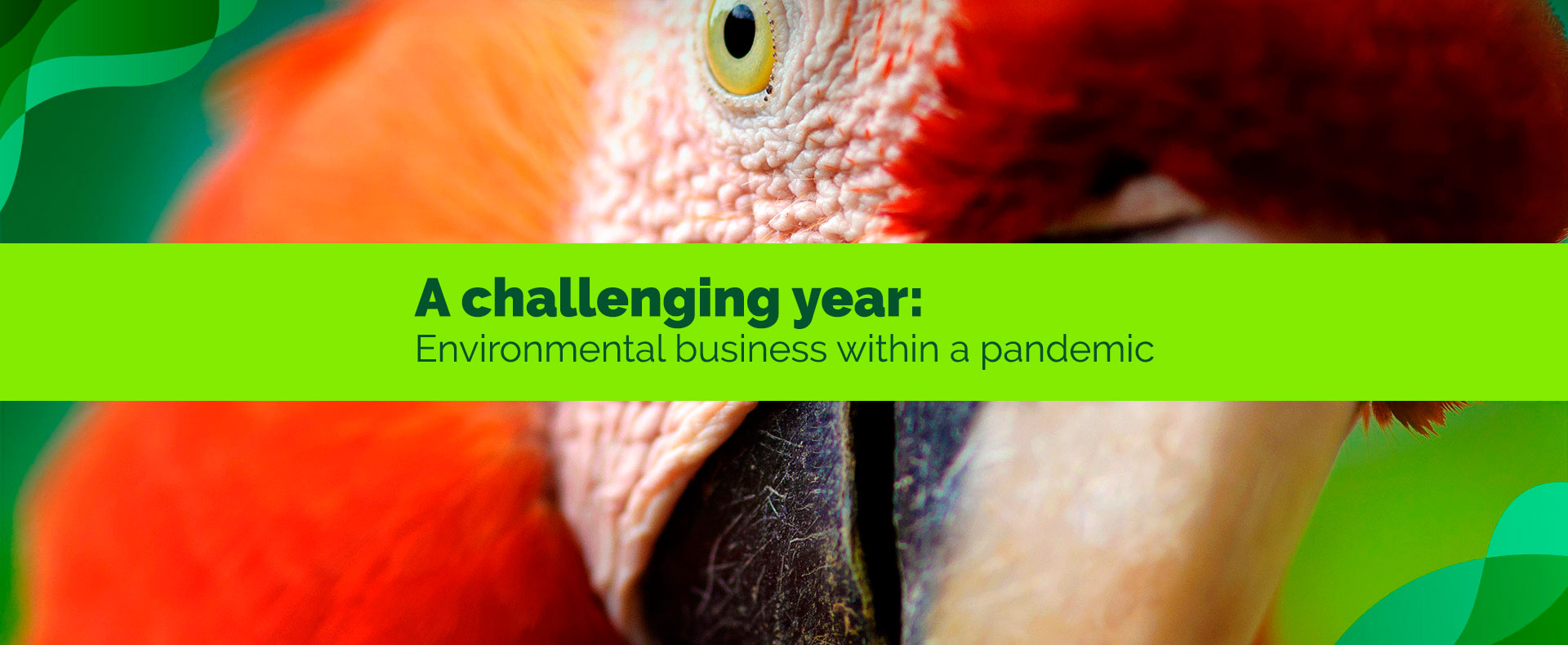
Dear all,
It’s difficult to say that the year was good within a context that brought so much pain, worry and anguish to the world. We’ve had a complex year.
Within the environmental scenario, expectations were set high. 2020 marked the beginning of the Paris Agreement, making us optimistic about a great evolution and growth of carbon markets, bringing more light and economic incentives related to forest conservation and environmental services.
The pandemic begun. Uncertainty took over and we had to adapt and face challenges beyond those in our plans. The economic impacts of the crisis did not spare forests, and the focus on COVID-19 left environmental concerns behind. Reflected in this was the deforestation in the Amazon, which until July 31st of this year, showed an increase of 9.5% compared to the same period last year.1
But if there is one thing we have learned in this period, it is that difficult times inspire innovative solutions and provide an opportunity for new policy development. For example, the launch of the Floresta+ Programprovided a stronger base to the Brazilian market as a result of greater legal certainty to buyers and sellers of carbon credits, among other benefits. In a report conducted by the REDD+ Brazil Alliance,it was also revealed that, with this boost, the voluntary carbon market has the potential to help nations not only achieve, but exceed their goals within the Paris Agreement. Another significant development was the Congressional approval of the National Payment Program for Environmental Services (Law 5028/2019). The program aims to put a price on the Amazon in order to quantify preservation.
While quarantines and social distancing were necessary, it was partnerships that strengthened us. Reaffirming our commitment to contribute to the sustainable development of Brazil,, we signed, together with companies in the industrial, agricultural and services sectors, the letter in defense of the agenda of sustainable development and conservation of the Amazon, conceived by CEBDS; we also collaborated in the construction of IHS Markit’s REDD+ credit price report with its newly publicized Global Carbon Offset Reports initiative, bringing greater transparency and confidence in the market.
In addition, we were the first Brazilian forest carbon project developers to integrate IETA, a non-profit business organization created to establish marketing guidelines and carbon market policies and be the central voice of market-based climate solutions.
In order to not to postpone our goals and objectives, we adapted. In November, our REDD+ team successfully completed the auditing process of our Maísa REDD+ Project. Due to the pandemic, this was Biofílica’s first audit conducted 100% remotely. With the verification completed, we were able to verify a total of 582,000 forestry carbon credits.
In addition to the new businesses, the recognition of our work came once more in the form of an award! For the fourth time, we won the EF Annual Voluntary Carbon Market Rankings in the category “The Best Project Developer, Forest and Land use” offered by Environmental Finance, the leading communication vehicle on environmental asset markets worldwide.
On this quickly approaching end to 2020, what I can say is that new habits inspired a new moment for Biofílica. We followed the changes and understood new needs – ours, of our business and of the world.
One of the greatest lessons was that, even physically distant, we were connected and working intensely close to our family members. We even made the decision to migrate to a permanent regime of anywhere office, maintaining the physical structure of the company in São Paulo. We believe that this way, we will be able to provide the best arrangement for our employees in addition to expanding our team with super qualified professionals regardless of where they are.
The pandemic also highlighted the undeterred need to contain climate change. A record number of companies said they were pursuing carbon neutrality over the next 30 years, and we felt that an awareness that was already gaining momentum, increased even further. This way, we remain optimistic and certain that environmental concern is becoming a priority, as it should be. To keep up with this growing demand, we will expand our team and, with great pride, make access to emissions compensation more affordable for small and medium-sized enterprises, individuals and families through our Carbon Calculator, a digital tool for calculating emissions and purchasing carbon credits to neutralize carbon footprints.
That being said, I end with a special thanks to our team and Biofílica’s board, customers and suppliers for having completed another challenging cycle, and for having made possible all of these achievements. We still have a long way ahead of us, but we have everyone by our side to continue to make a difference in Brazil and in the world.
I wish everyone a happy holiday and that our hopes and strengths can be renewed to face another year of new challenges, growth and evolution together.
A virtual hug,

Plínio Ribeiro
Biofílica’s co-founder and CEO
[divider height=”30″ style=”default” line=”default” themecolor=”1″]
1 Estimation based on the data generated by the Project for Monitoring Deforestation in the Legal Amazon by Satellite (PRODES), conducted by the National Institute of Space Research (INPE). According to the most recent publication, 11,088 km² of deforestation occurred in the period from August 1, 2019 to July 31, 2020, against 10,129 km² deforested in the previous period.
[divider height=”30″ style=”default” line=”default” themecolor=”1″]
Biofílica in numbers:
